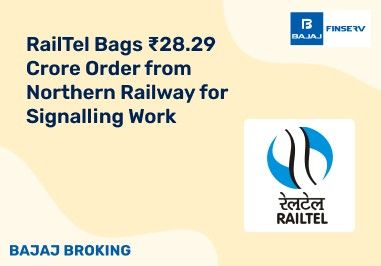Understanding Dabba Trading Meaning in Detail
Dabba trading is a term used in the Indian stock market representing a hidden and unregulated form of trading. The term “Dabba” translates into “box” which is exactly the way this type of trading is done. Dabba trading or box trading is done by betting on the stock prices to make a profit without actually getting into the buying and selling of stocks, securities or assets in the stock market.
Also known as bucketing or parallel trading, under this type of trading investors and brokers bet on the price movement of stocks. Dabba trading is settled completely through cash transactions leaving no trail or record for regulation by the Securities and Exchange Board of India. Although a common practice, dabba trading is not legally allowed.
How Does Dabba Trading Work?
Now that you have a fundamental understanding of dabba trading meaning, let’s understand how does dabba trading work.
Simply put, under dabba trading traders bet on the price movements of stocks. They guess the price movement and put a bet with a broker on those stocks. Now, if the price moves in the same direction, the trader would make a profit and if it moves in the opposite direction, the broker would make a profit.
Let’s take an example to further simplify dabba trading: Say that a trader makes a bet on ABC stock that its price would increase from ₹300 to ₹350 within 7 days. Now if the price actually increases from ₹300 to ₹350, the trader will make a profit of ₹50. However, if the price of ABC stock goes down to ₹250 then the trader faces a loss and the broker gets to earn from this loss.
Remember that these are not regulated by SEBI and therefore neither of the parties have any grievance redressal authority to make a complaint in case of fraud or any such malpractice. All the transactions are settled internally by the dabba operator.
Attributes of Dabba Trading
Let’s take a quick look at the attributes of Dabba trading to understand it's working better and why traders are involved in this type of trading despite the lack of regulations:
One of the most important aspects of dabba trading is that it is not done on the official stock market and therefore it is not guided by the rules and regulations of the stock market. This makes dabba trading extremely risky as there have been many instances of brokers evading the fund or traders not making good of the loss to brokers.
Since dabba trading is done outside the official stock market, traders and brokers avoid tax obligations. All the transactions are settled through cash which makes it hard to track unlike regular trading where transactions are recorded and there is an obligation to pay taxes like Securities Transaction Cost and Commodities Transaction Cost.
Regular trading comes along with several types of platform, processing and transaction charges that increase the overall trading cost. What makes dabba trading appealing is that these charges are eliminated, providing a chance to trade at lower costs.
Another aspect of Dabba trading that makes it appealing and dangerous at the same time is that the income generated under this is not reported making it easy for traders and brokers to evade tax or indulge in illegal activities.
With the elimination of regulatory procedures and a limited number of participants, Dabba trading provides faster trade execution.
Traders are in a better position to make a profit provided that they have a basic understanding of price movements in the market. Even a minimal increase in price can provide an opportunity to make a profit.
Risks Associated with Dabba Trading
If you have reached till here, you must have understood that Dabba trading is associated with several risks given its unregulated and hidden nature. Here’s a list of risks that Dabba Trading is prone to:
Firstly, as appealing as Dabba trading appears, there are high chances of traders facing loss of investment. This is majorly due to two reasons: Brokers tend to evade the investment amount of traders as there are no legal obligations or contracts and secondly, price manipulation and fraudulent activities under Dabba trading are common and often lead to a lack of investment.
Regardless of how common fraudulent activities are under Dabba Trading, neither of the parties has any legal protection. Unlike regular trading, Dabba trading does not provide any grievance redressal body or any right to hold the other party guilty/accountable.
As discussed earlier, Dabba Trading is not legal in India and therefore traders or brokers involved in this type of trading can face legal issues and have to deal with fines, penalties or even criminal charges.
Additional Read: What is Trading Account: Definition, Types & Benefits
Difference Between Legal Trading and Dabba Trading
Dabba trading is illegal in India and it differs from all other types of legal trading in many ways. Primarily, the difference between Dabba trading and legal trading is that the former is illegal and unregulated while the latter is legal and regulated by the SEBI making it safer. Although Dabba trading comes with lucrative opportunities to evade tax implications, the consequences are much more severe like facing criminal charges etc.
Let’s take a quick look at the differences between legal trading and Dabba trading:
Factor
| Legal Trading
| Dabba Trading
|
Legality
| All types of legal trading are regulated and guided by the rules of SEBI
| Unregulated and illegal. This type of trading is done outside the official stock exchange
|
Transparency
| All the trading transactions are recorded to provide transparency.
| Not recorded, making transactions more opaque.
|
Risks
| Can be managed through risk management strategies and SEBI rules.
| Prone to higher risks due to the complete lack of any regulatory body.
|
Taxation
| Traders are under different types of tax obligations
| No tax obligations
|
Requirements
| Required a trading account and a demat account.
| Does not require any trading or demat account. All transactions are settled outside the stock exchange through cash.
|
Complaint Mechanism
| Traders and brokers have the right to complain about malpractices, fraud etc.
| No grievance redressal body or a right to complain against malpractices, fraud etc.
|
Consequences of Participating in Dabba Trading
Dabba Trading is not any other unregulated activity, it is an illegal activity that has been strictly prohibited under several provisions of law. Indulging in Dabba Trading can lead to facing criminal charges that you would want to avoid.
Amongst others, here are some provisions dealing with prohibition of Dabba Trading
Charges under sections 406, 420 and 120 (B) of the Indian Penal Code, 1870 can be levied against any person caught indulging in Dabba Trading, which can lead to imprisonment up to 10 years along with a heavy fine.
Additional Read: Differences Between Nifty and Sensex
Conclusion
To sum up, Dabba Trading is a lucrative practice based on its wide profit margins and zero tax implications but it is a risky space. In India, Dabba Trading is strictly prohibited and indulging in the same can lead to severe consequences like criminal charges, hefty fines and penalties.
Disclaimer: Investments in the securities market are subject to market risk, read all related documents carefully before investing.
This content is for educational purposes only. Securities quoted are exemplary and not recommendatory.
For All Disclaimers Click Here: https://bit.ly/3Tcsfuc














